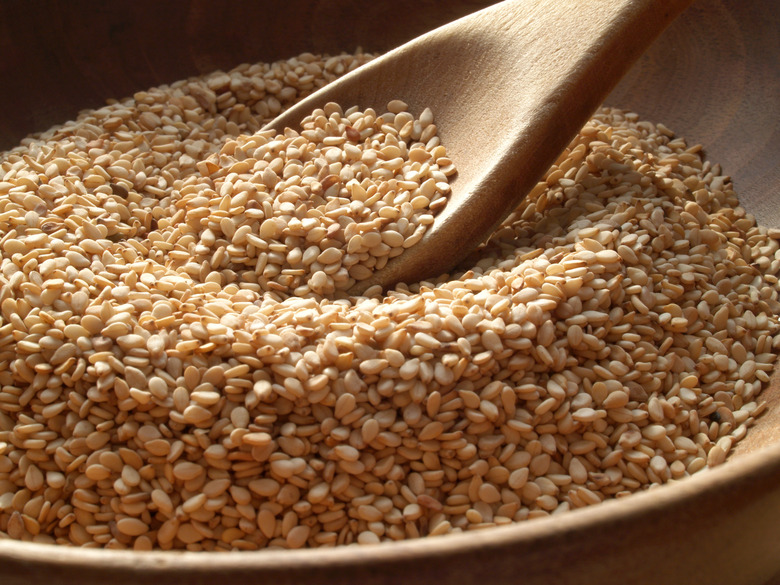How Do Birds React To Sesame Seeds?
The seeds of the sesame plant grow in pods and are widely cultivated throughout the world. Birds are exceptionally fond of sesame seeds. But, as with small children, what they like isn't necessarily what is best for them.
Source
Source
Sesame seeds are the seeds of the sesame plant, Sesamum indicum. Once the plant's pinkish-white flowers are fertilized, the seeds will take about a month to appear. When ripe, the pods open and reveal the flat tiny seeds inside. The seeds can come in a variety of colors such as yellow, white, red and black.
Negative Effects
Negative Effects
In their natural habitat, birds will eat a wide variety of foods, such as:
- sprouts
- nuts
- seeds
- grains
- leaves
- fruits
- insects
In captivity, if they are allowed unlimited access to seeds such as sesame, they will happily eat them. However, this traditional method of restricting their diet mostly to seeds such as sesame is outdated and damaging. Birds should always be fed a balanced diet.
Sprouted Seeds
Sprouted Seeds
Sprouted sesame seeds are generally better for birds than their nonsprouted counterparts. This is because the act of sprouting enhances the nutritional value of the seed. It also reduces the fat content as the fat stores are used to grow the sprout. Birds which refuse to eat fruit or vegetables may be happy to eat sprouted seeds.
Nutrition
Nutrition
Sesame seeds are exceptionally rich in manganese, iron, calcium and magnesium, all of which are essential to the avian diet. Sesame seeds also contain sesamin and sesamolin. These are unique fibers known as lignans and have been shown to increase vitamin E supplies and prevent high blood pressure in animals such as birds.
Individual Differences
Individual Differences
The effects of sesame seeds on different bird species can vary. For many cockatoo species, too much fat can be damaging. Oily seeds such as sesame seeds should therefore be limited. Conversely, macaws require a lot of oil and fat in their diet, so they can benefit from the addition of sesame seeds. African gray parrots also benefit from a little extra oil in their food.
Cite This Article
MLA
Schamotta, Justin. "How Do Birds React To Sesame Seeds?" sciencing.com, https://www.sciencing.com/do-birds-react-sesame-seeds-6660749/. 13 March 2018.
APA
Schamotta, Justin. (2018, March 13). How Do Birds React To Sesame Seeds?. sciencing.com. Retrieved from https://www.sciencing.com/do-birds-react-sesame-seeds-6660749/
Chicago
Schamotta, Justin. How Do Birds React To Sesame Seeds? last modified March 24, 2022. https://www.sciencing.com/do-birds-react-sesame-seeds-6660749/
